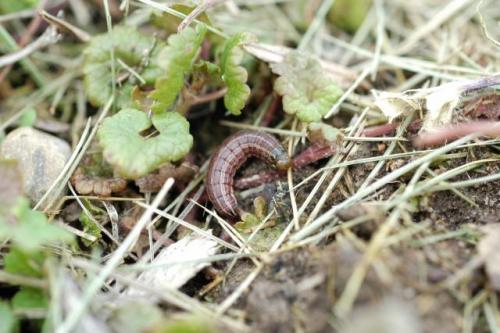
Colorado lawns, trees and shrubs can be inviting nesting places for insects. Outdoor Perimeter Insect Control keeps unwanted crawlers out. Crawling insects can sting, bite, cause skin irritations and allergic reactions. Some insects infest lawns and trees to the point of becoming a visual blight or even damaging the plant, causing concerns about safety, liability and property damage.
On any large-scale property, mature trees are one of the first focal points visitors will notice, as well as being one of your most valuable assets. The second would be the large expanse of lawn many commercial properties feature around their property.
These insects develop on various plants around the foundations of homes in late winter or early spring. Mites periodically enter buildings, becoming a nuisance, but are not destructive.
 Webworms and Grubs
Webworms and GrubsUnhealthy, brown spots in your lawn are a sign one of these two insects have made their way on to your property. Grub infestation is detected by pulling up damaged grass – if it pulls out easily with no roots attached, it’s likely grub infested. If it stays firmly attached, it is more likely sod webworm. An annual application of insecticide in late May or early June is the preferred way to treat a lawn with recurring grub infestations.
Denver Billbugs are serious insects that live in turfgrass throughout parts of Colorado. They feed below ground and damage either the roots or the growing crown area of the plant. The best control for the Denver billbug is a spray applied in early June to kill adult insects prior to laying eggs.
Lawn mites can be hard to diagnose to the untrained eye and are most active and damaging in the months of February, March, April and even into May. Property managers often realize there’s an issue when patches of their turf don’t appear to be greening up as the growing season progresses.
Severe mite problems are best mitigated with a combination of strategic watering and Miticide applications, which Swingle offers. If left untreated, you might find yourself replacing part or all of your turf areas come the spring.
The best thing you can do to prevent mites from attacking your lawn is to water it during warm, dry conditions. A 30-45 minute watering, once a week, is sufficient during these times. Pay close attention to south and west facing areas of the yard especially near evergreen trees and shrubs, and along building and slopes, as they tend to dry out much faster.
Swingle Lawn and Tree Care Service offers organic soil enhancers, organic lawn fertilization, organic mulch and a variety of other services (like injectable pest control) to keep your yard as healthy, weed-free and safe as possible.
No. There is no definitive solution to rid your property of rabbit damage. Repellents and traps may work for a brief period of time, but eventually become ineffective. The best advice is to rid your property of overgrown shrubs and ground cover as well as “hiding” spots, which provide the perfect protection and home for these furry creates.